
Brewing is an art that requires skill, creativity, and passion. But when your brewery begins to scale up, with production volumes rising and your brand becoming increasingly recognized, certain challenges begin to surface. One challenge is the need for efficient, accurate, and reliable labeling of your beer bottles. This is where a bottle labeler steps in, offering a powerful solution to supercharge your productivity. We want your passion for your beer to be reflected in every label applied to your bottles, and we want this process to be as efficient and cost-effective as possible for you. So, whether you are a small brewer just starting to expand your horizons or a larger operation seeking to streamline your labeling process, this guide will offer valuable insights to enhance your business.
From Bottleneck to Bottle Neck: Streamline Your Brewery's Labeling Process
As your brewery grows, so does the need to improve productivity, maintain consistent quality, and streamline operations. Labeling is a crucial part of this process—how your beer bottle is labeled can significantly impact your brand's image, consumer perception, and overall business efficiency. Here are the key ways labeling equipment can enhance your brewery's operations.
Increase Efficiency: Automatic labeling equipment can apply beer bottle labels at high speeds, exceeding the capacities of hand labeling. This automation helps ramp up production rates, eliminate bottlenecks, and enhance overall efficiency, leading to productivity gains that simply cannot be matched with manual processes.
Decrease Labor Costs: Your employees are a valuable asset to your business. However, when employees devote time to manual labeling, the costs can quickly pile up. Bottle labelers can save these labor costs significantly, freeing your staff to work on other critical areas of the business that add more value.
Reduce Errors: Hand-labeling is prone to errors and inconsistencies, which can lead to product damage, loss, and dissatisfaction among customers. Automated labeling equipment guarantees a precise and uniform application of labels, ensuring your products are accurately labeled every single time.
Save Time: The setup and operation of labeling equipment are straightforward, requiring minimal supervision. This time-efficient solution enables your team to dedicate their time to more important aspects of the business.
Boost the Quality of Your Products: High-quality, accurately placed beer bottle labels improve product aesthetics and positively impact your customers. An automatic labeling system ensures each label is placed perfectly, enhancing your brand image and customer perception.
Eliminate Damage to Labels: Automated labeling equipment prevents label damage during application. This is especially useful for large-scale breweries where potential label damage can result in substantial loss.
Bottle Labelers: Designed for Efficiency and Accuracy
Bottle labelers are sophisticated equipment designed with one key goal: efficiently and accurately apply labels to various bottled products. With various models available, each equipped with different features and capabilities, choosing the right one for your needs can be overwhelming. However, carefully assessing your needs can give you an understanding how different labelers can meet those needs.
It is important to note that bottle labelers come in various sizes and configurations. This variety caters to the diverse requirements of different businesses. For instance, a compact tabletop labeler might be more appropriate if your brewery is still in its early stages. On the other hand, larger, more established breweries might require standalone bottle labelers capable of labeling thousands of bottles per hour.
The type of bottles you are labeling significantly influences your choice of a labeler. For example, if you are labeling cylinder bottles, wrap-around equipment might be the perfect fit. However, if your bottles have unusual or asymmetric shapes, a custom labeler may be required to ensure consistent and accurate label placement. The type of label you are using is also important. You will want a labeler specifically designed to apply pressure-sensitive labels without causing damage. If you use shrink sleeves or other beer bottle labels, you will need a labeler capable of handling these effectively.
Pressure-sensitive or Shrink Sleeve: Finding the Best Label for Your Brew
In the world of labeling, one size does not fit all. Every product has unique attributes, and each brewer has a distinctive vision of how their product should appear on the shelf. Understanding the various labeling options available and how they can align with your specific requirements is critical. There are two popular label types: pressure-sensitive labels and shrink sleeve labels.
Pressure-sensitive Labels
Pressure-sensitive labels adhere to surfaces upon the application of pressure. They are like stickers and do not require heat, solvent, or water to attach to the bottle. This type of label is highly versatile and is an excellent choice for a wide range of applications.
One major advantage of pressure-sensitive labels is their design flexibility. They can be manufactured in various shapes, sizes, and colors, allowing you to customize your product's look fully. If you frequently update your label design or introduce new beer varieties, pressure-sensitive labels offer the flexibility to change your designs easily.
Another advantage of pressure-sensitive labels is their durability. These labels resist various environmental conditions, including temperature fluctuations, moisture, and UV light, making them reliable for beer bottle labels.
It is also important to note the ease of application with pressure-sensitive labels. These labels are relatively straightforward to apply whether you are using manual, semi-automatic, or fully automatic labeling equipment. This simplicity can help keep your labeling process efficient and productive.
Shrink Sleeve Labels
Shrink sleeve labels are a modern label offering a few key advantages. These labels are placed over the bottle, and then heat is applied, causing the label to shrink and tightly conform to the bottle's shape.
The biggest advantage of shrink sleeve labels is the 360-degree product coverage they offer. This feature opens up a world of possibilities for your label design, giving you more space to work with. You can use this space to include more information or to create eye-catching designs that draw customers' attention.
Shrink sleeve labels also offer enhanced durability. The labels are resistant to scuffing, abrasion, and moisture. This resistance means that your labels will continue to look sharp and professional for longer, even when subjected to harsh conditions.
The ability of shrink sleeve labels to conform to a wide variety of bottle shapes is another key advantage. Whether your bottles are round, square, or unusual, shrink sleeve labels can adapt to fit them perfectly. This flexibility makes them an excellent choice for breweries that use uniquely-shaped bottles to distinguish their products in the market.
Essential Tips for Picking the Right Labeler
The task of buying a labeler might initially seem daunting, given the range of options available in the market. However, with the right guidance and understanding of your brewery's specific needs, you can ensure you make the right investment. Below are a few key factors to consider when purchasing a labeler.
Understanding Your Product Needs
Each brewery has unique product requirements. The type of bottles you are labeling, the kind of labels you are using, and the environment in which the equipment will operate all impact the type of labeler you should choose. For instance, a wrap-around labeler might be suitable if you use pressure-sensitive labels on cylindrical bottles. However, a custom labeler may be required to label unique or asymmetric bottle shapes. Understanding your product needs is the first step to finding a suitable labeler.
Considering Size Restrictions
When considering the size of the labeler, you should look at two aspects — the size of the equipment itself and the size of the labels it can handle. Ensure the labeler fits comfortably within your production area without hampering the workflow. The labeler should also be able to handle the size of your labels. Some equipment is designed for small, simple labels, while others can handle larger, more complex beer bottle labels.
Accounting for Production Quantity
Your production volume is another crucial factor. A semi-automatic or even manual labeler might suffice if your brewery is small and only produces a few hundred bottles daily. However, a fully automatic, high-speed labeler would be more suitable for larger breweries producing thousands of bottles per hour.
Comparing Features
Different bottle labelers come with a variety of features. Some labelers offer added functionalities such as label verification systems, touchscreen controls, or handling multiple label sizes without requiring equipment changeovers. While these features may not be necessary for all breweries, they can offer added convenience and efficiency for some.
Setting a Budget
Budget plays a significant role in purchasing a labeler, like any other business decision. The cost of labelers varies greatly depending on their features, capabilities, and automation level. While a higher initial cost might seem overwhelming, it is crucial to consider the long-term benefits of the equipment. More sophisticated, higher-cost labelers might offer better efficiency, accuracy, and durability, reducing long-term operational costs.
Enhance Productivity With Automated Labeling Systems
Switching to an automated labeling system can be a game-changer for your brewery. It offers efficiency, cost savings, and a significant boost in product quality. At Pack Leader USA, we provide solutions tailored to meet your specific needs, aiding in your journey toward heightened productivity and growth. For more insights, download our free resource, The Brewer’s Guide to Craft Beer and Microbrew Labeling Equipment. It is time to let technology streamline your production line so you can focus on what you do best — crafting great beer!
.webp?width=200&height=135&name=2x-Packleader-logo-large%20(1).webp)

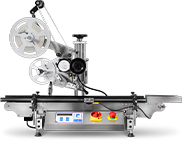
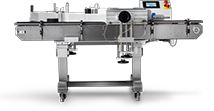
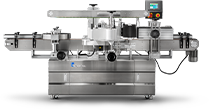
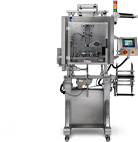
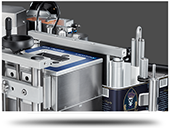
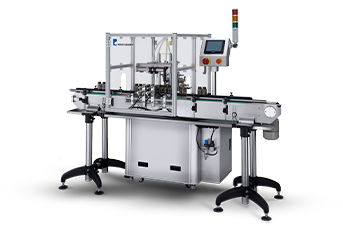
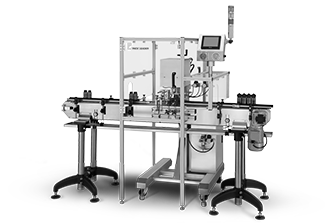
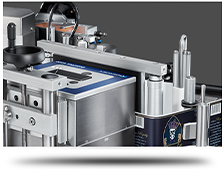

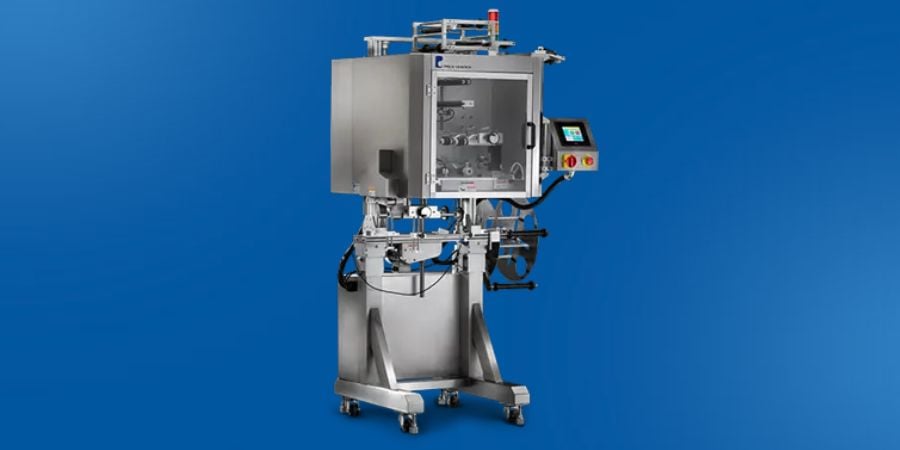





.webp?width=360&name=2x-color-logo%20(1).webp)